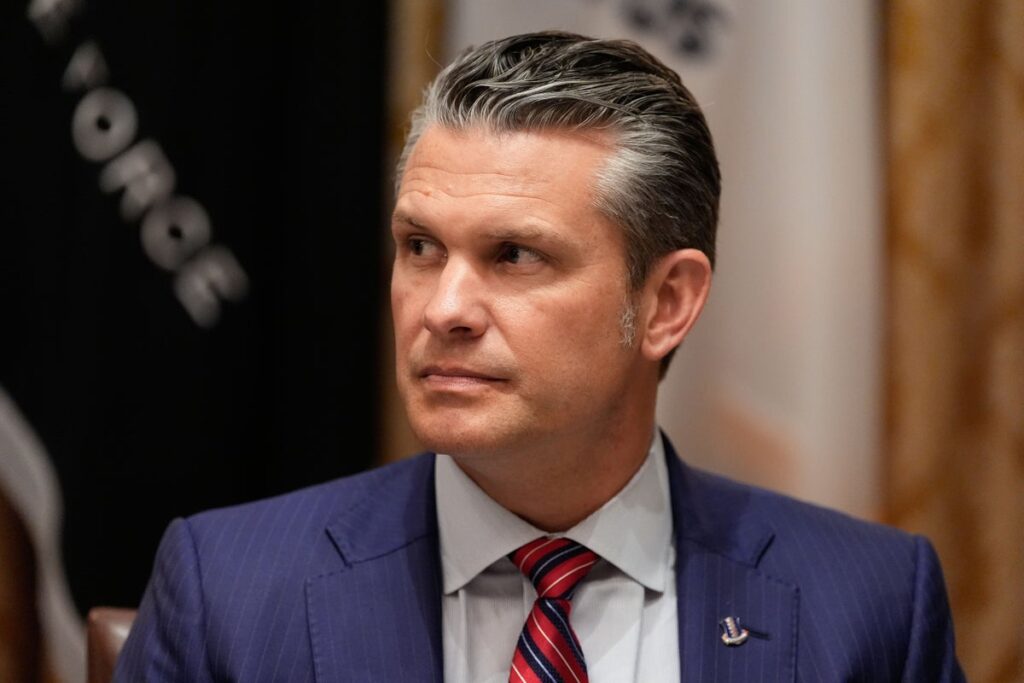
After a mass walkout by veteran reporters over the Pentagon’s new press policy, only 15 journalists remain credentialed to cover the U.S. Department of Defense. This dramatic reduction follows the Defense Department’s implementation of stringent media restrictions, prompting a significant backlash from the journalistic community.
The exodus occurred on Wednesday, as print and broadcast journalists from nearly every major American news organization, including traditionally conservative outlets like Fox News and Newsmax, refused to comply with the new rules. These regulations, introduced by Defense Secretary Pete Hegseth, were outlined in a 21-page policy document that prohibited reporters from soliciting information from government employees without prior Pentagon authorization.
Press Freedom Under Siege
The Pentagon Press Association, representing around 100 journalists, condemned the policy as an “unprecedented message of intimidation,” urging the Department of Defense to reconsider its stance. The association, which includes members from 57 domestic and international news outlets, argued that the policy was a unilateral move to control information.
“Our members did nothing to create this disturbing situation. It arises from an entirely one-sided move by Pentagon officials apparently intent upon cutting the American public off from information they do not control and pre-approve,” the association stated.
By Thursday, it was evident who remained in the Pentagon’s press corps. An internal document obtained by The Washington Post revealed that only 15 journalists had signed the new press pledge. These included representatives from pro-Trump outlets like One America News and The Federalist, alongside freelancers and foreign media members.
Who Remains in the Pentagon Press Corps?
The remaining journalists are a diverse group, including two from One America News, one from The Federalist, and another from The Epoch Times. The rest are freelancers and foreign correspondents, such as a reporter for Turkey’s Akşam newspaper and individuals from the Turkish state-run Anadolu Agency. Additionally, reporters from The Australian, an Afghan freelancer, and several lesser-known outlets like AWPS News and the India Globe are among those who signed the agreement.
Interestingly, two members of the Jordanian TV network Al Taghier signed an earlier version of the policy, which was later revised after negotiations with the Pentagon Press Association.
Reactions and Implications
The media landscape at the Pentagon has shifted dramatically, with One America News being the only outlet to publicly agree to the restrictive pledge before the mass walkout. Charles Herring, president of One America News, stated that their legal team had reviewed the policy, leading to their compliance. Meanwhile, Kristina Anderson of AWPS News expressed a “profound sense of loss” as she continued her work under the new rules.
The Federalist’s leadership, including CEO Sean Davis and editor-in-chief Mollie Hemingway, issued a statement downplaying the impact of the new rules while criticizing other media outlets for their stance. They accused mainstream media of hypocrisy, citing past instances of censorship against conservative voices.
“Where were these self-styled First Amendment defenders when we were illegally censored and targeted for debunking Deep State lies and hoaxes?” their statement read.
Fox News and Newsmax, despite their conservative leanings, joined other networks in rejecting the Pentagon’s policy. They emphasized their commitment to journalistic freedom and the importance of keeping the public informed on national security matters.
Looking Ahead
With Defense Secretary Hegseth and President Donald Trump maintaining their position on the media rules, the future of Pentagon press coverage remains uncertain. Pentagon spokesperson Sean Parnell took to social media to mock the departing journalists, suggesting that new announcements regarding the Pentagon press corps are forthcoming.
“The Department of War will make an announcement soon regarding the next generation of the Pentagon press corps,” Parnell tweeted. “Stay tuned. The best is yet to come!”
This situation highlights ongoing tensions between the government and the press, raising concerns about the future of press freedom in the context of national security reporting. As the Pentagon prepares to unveil its new media strategy, the journalistic community and the public alike await further developments.





